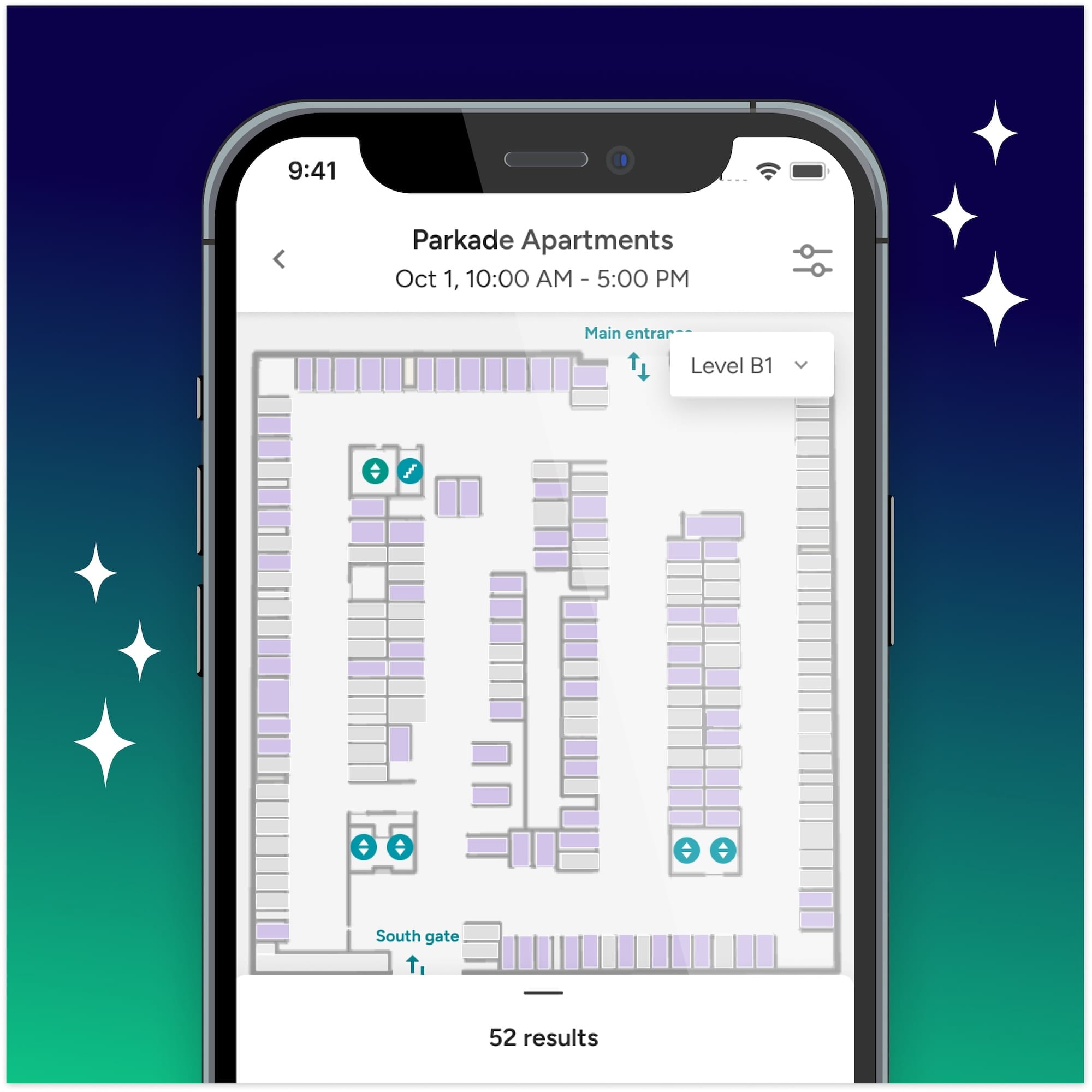

TABLE OF CONTENTS
Deciding whether or not to install a gate on your property can be tough. You have to balance the security benefits with the cost and hassle associated with installing and maintaining the gate. However, that’s just the first part of the decision.
If you decide that a parking gate is the right option for your property, you have to then consider which type of gate to install.
There are several different types of gates, all of them with their own strengths, weaknesses, and price points. And there isn’t one clear winner – what’s the perfect solution for one property may not work for another.
So we’re going to go over some of the most popular options for multifamily properties and help you understand which types are best equipped to meet certain property needs.

Swing gates are perhaps the most common gate type for large multifamily properties. They’re relatively easy to install and simple to operate.
However, notice that we mentioned large multifamily properties. These gates require a lot of room to operate. Since space is required for these gates to swing either inward or outward, some properties have too tight of a space to fit one of these kinds of gates. The general rule of thumb is that you need to be far enough away from the street to allow for one additional car to be in queue without running into the street, and have a maximum 3% slope.
You have to be especially considerate of space when the gate swings inward, because you run the risk of damaging cars as the gate opens. You have to be extra clear – with signage, painted lines, etc. – where the “safety zone” for cars to wait is.
A great thing about these gates is that their appearance can be customized to match the aesthetic of the surrounding area due to the variety of materials they can come in. Typically, you can find options made of wood, steel, aluminum, or some combination of the three.
Depending on the design, there can be varying levels of security. If the gate is built into a fence or wall on either side, it makes it much harder for pedestrians to pass through. However, some gates primarily prevent cars from passing through.
Preventing cars is not a given, though. Legally, gates need to remain open for at least 15 seconds from the last car passing through. So while signage, cameras, and threat of fines can deter tailgating, the gate itself may have limited power.

As we mentioned, the swing gates need a lot of space to operate, so many properties who don’t have the room opt for a slide gate. These types of gates run a track that allows them to slide horizontally as they’re opening, parallel to a fence or a wall.
Many properties like the discretion of the design of these gates, since they function like a pocket door, shifting in and out of view. Whereas swing gates are highly noticeable when opening, slide gates can fit in with a more minimalist look.
There are also a variety of options for the appearance of these gates, typically providing a choice of various materials like wood, steel, and aluminum.
The level of safety a slide gate provides is similar to that of the swing gate – the design may be more or less effective at preventing unauthorized pedestrian access, but the legal standards around minimum close times may leave you open to the possibility of cars tailgating.

For properties with extremely limited space, roll-up gates are a popular space-efficient option.
Similar to how your garage door may work at a single family home, these gates roll upward into a compact coil when they open. Since they open vertically, they can often fit in areas where space doesn’t allow sliding or swinging gates.
Of all of the types of gates mentioned here, roll-up gates are typically the most secure, given the difficulty people have surpassing them. When closed, it’s impossible for trespassers to climb over or walk around this gate.
Speed roll-up gates, specifically, are extremely popular options for busy residential complexes because of their ability to open and close quickly to keep traffic flowing.
The material can vary for these gates, but for residential communities, aluminum is a popular option. It’s lightweight, which helps it move quickly, and is affordable compared to other gate materials.

Arm gates are common at large shopping centers and other commercial parking garages, but many multifamily properties choose them to control parking as well. The simple setup and cost-effectiveness of these gates is a major draw for many properties.
These gates consist of a pivoting bar or arm that lifts to let cars drive through. Many drivers love this option because it’s fast and efficient. Not only do drivers enjoy the speed at which they can enter or exit, but an arm that lifts and lowers quickly also helps keep a lot more secure by preventing tailgating.
That being said, the structure of this gate makes it extremely easy for pedestrians to walk right under or around gates to enter your lot.
To overcome this, many properties go for a more hybrid solution. During the day, the arm makes it easy for cars to enter and exit the garage quickly, and at night, they use a roll-up gate to prevent any overnight trespassing. This is an especially popular option in areas where you need to be extra security conscious, like high-crime areas or downtown.

There are several more factors that go into installing a gate on your property than just what type of gate you choose. You have to consider the upsides and downsides, what access system you may want to use, and whether you need a gate in the first place.
Check out our parking guide, “Everything you need to know about parking gates” to approach this expensive decision in the most strategic way possible.
.jpg)
As parking management becomes increasingly digital, security becomes critical — and we’re excited to share that we've achieved a major security milestone.
Read Story
We’re thrilled to announce one of our most significant leaps forward this year: the launch of dynamic maps across our mobile and web applications.
Read Story
Now that AB 1317 is official, it’s time to brush up on the requirements and see how your properties stand to benefit.
Read Story